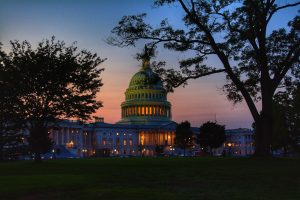Consulting firms that work directly with the U.S. government may soon see stricter rules requiring them to disclose their work with adversarial nations such as China and Russia, according to a report by NBC News.
After years of light-handed regulation of firms providing national defense consulting services to the Pentagon or other federal agencies, a group of Senators are pushing for a new approach, calling for new regulations that would help agencies identify potential conflicts of interests and if necessary, deny national security contracts to firms that run afoul of the rules.
“It seems entirely reasonable that we would want to know whether the companies that have the privilege of working with the United States government and receiving taxpayers’ money are doing business with autocracies like China or Russia,” said Scott Greytak, Director of Advocacy at Transparency International U.S., a nonprofit promoting efforts to fight corruption.
Congressional aides have been recorded as saying the bill was prompted by reporting by NBC News and The New York Times about McKinsey & Company’s work providing advisory services to state-owned companies in China and Russia while simultaneously taking on contracts with the Pentagon and other U.S. intelligence agencies. The nature of the firm’s government contracts give it an inside view of U.S. military planning, intelligence, and cutting-edge weapons development.
McKinsey claims that its work with Russia and China does not pose a conflict with services provided to the Pentagon, with company spokesperson Neil Grace previously telling NBC News that the firm has strict rules and organizational firewalls in place that keep its overseas work separated from its work in Washington.
The Russian invasion of Ukraine prompted McKinsey, along with many other consultancies and hundreds of other corporations, to halt operations in Russia indefinitely, though many companies did not do so until they received additional public pressure. McKinsey continues to operate in China, though it does not disclose details about its clients or work in the nation.
While the new bill has only been recently introduced and is likely to see changes as it progresses, it comes as part of additional conflict of interest regulatory scrutiny that is seeing many of the Big Four firms considering separating their audit businesses from their consulting practices.

























